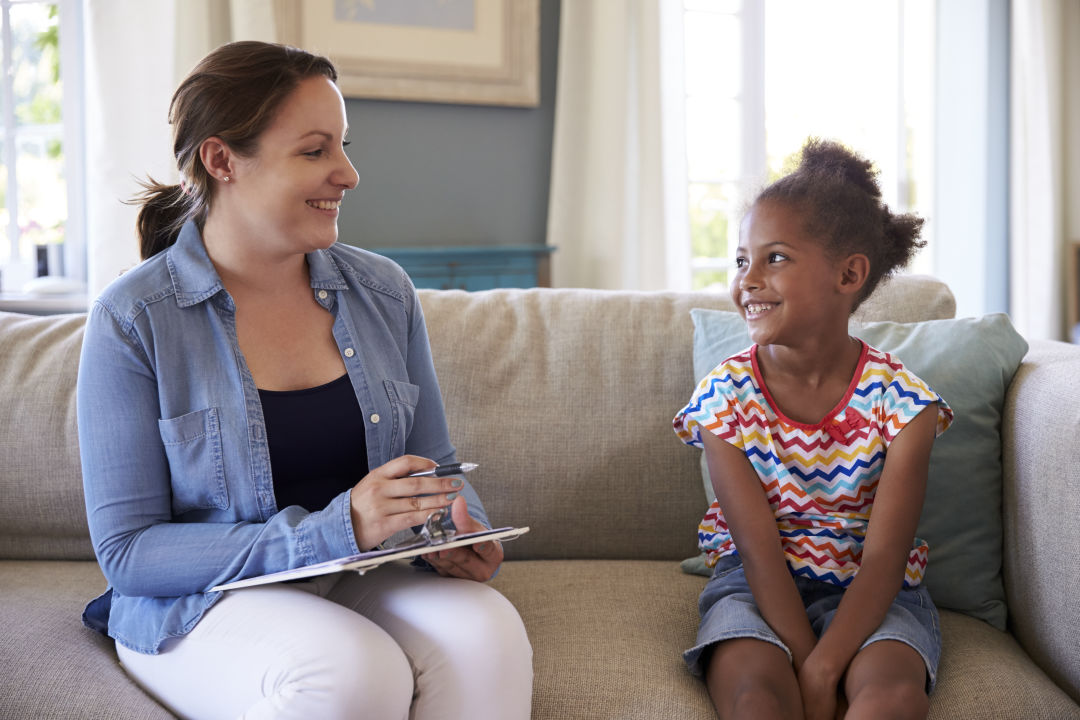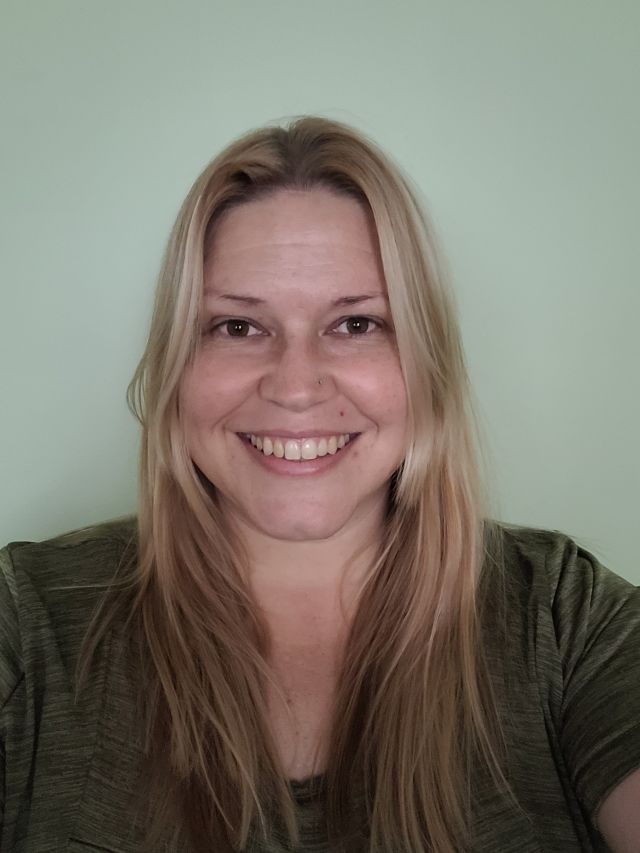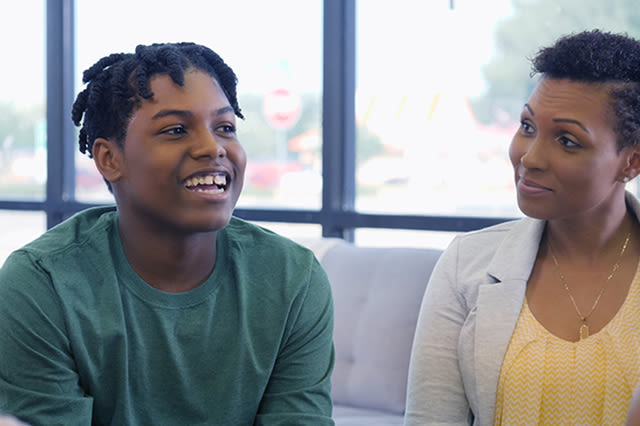The Challenges and Rewards of Working in Mental Health

"Where we are as a family would not have been possible without Albertina Kerr. We need to do whatever we can to make sure this service stays alive and well in the community.” —Parent of a Kerr client
When Garnett Dittfurth meets kids and families for the first time, she knows they are having one of the worst days of their life. “Before I ever see them, the child and the family have been in crisis,” she says. “They have usually burned through all their resources and are in desperate need of life-saving care.”
Dittfurth, a Clinical Training Specialist for Albertina Kerr, is currently covering in an interim capacity as a Child and Family Therapist in Kerr’s Children’s Crisis Psychiatric Care program. “Mental health services are very limited right now due to a lack of clinicians across the state,” she remarks. “Kids are on waiting lists longer, and some families are unable to access vital resources.”
According to Benjamin Treckman, Program Manager for Kerr’s Children’s Mental Health Services, the effects of COVID-related stress continue to take a toll on the mental health of the community’s youth, as well as healthcare workers. “There are a lot more stressors on everyone,” he says. “So many providers across the country are feeling burned out and leaving the field. My biggest concern is we may be entering a time when these services may not be accessible to those who need it most.”
Despite the challenge of fewer mental health professionals, children and teens are struggling with depression, anxiety, trauma, loneliness and suicidal ideation. “They just can’t take it anymore,” Treckman says. “Their story looks really bad on paper at first—our goal is to rewrite that story.”

“The staff at Kerr helped my daughter feel like her life was worth living.” —Parent of a Kerr client
Part of an integrated multidisciplinary team, Kerr’s Child and Family Therapists provide individual and family therapy, as well as care coordination. Their caseload is about five kids, ranging in ages from 5 to 17. “We help families navigate and access care services so they can hit the reset button and move forward,” Dittfurth explains. “Day-to-day, I see all the kids and get to know them—that's where the fun is—in the direct one-on-one care.” Treckman adds, “The more you can be in connection with the youth and their family—the better the care and quality of service.”

Garnett Dittfurth—Kerr Clinical Training Specialist, covering in an interim capacity as a Child and Family Therapist, “There’s something magical about the moments when the kids in the unit are just being kids—that’s when you know they’re doing a little better.”
Dittfurth is also a certified Collaborative Problem Solving Trainer through Think:Kids. “It’s a proven approach to deescalate challenging behavior, while teaching kids the skills they lack so they can build healthy relationships,” she says. “There’s something magical about the moments when the kids in the unit are just being kids—that’s when you know they’re doing a little better.”
Even though these are challenging times, Treckman encourages people to pursue a career in mental health. “There’s joy in knowing you’re making a positive change in a person’s life,” he says. “That, in itself, is so rewarding.” Dittfurth adds, “I love this work so much that I am filling in for an important role because people need help right now.”
To address this emerging crisis, Kerr is creating a Retention and Recruitment Fund to attract, develop and retain qualified Child and Family Therapists (CFT). When fully funded, Kerr’s CFT Recruitment and Retention Fund will incentivize and support 17 CFTs. This in turn will allow Kerr to provide 70,000 hours of mental health care for more than 750 children and their families.

Last year, Kerr’s Children’s Mental Health Services helped nearly 600 kids from across Oregon and Southwest Washington survive and thrive. Eighty-five percent of the children and teens in Kerr’s crisis psychiatric care returned home or to a lower level of care. To learn more about Kerr’s Children’s Mental Health Services, or support this critical service, visit AlbertinaKerr.org.
Since 1907, Albertina Kerr has been caring for Oregon’s most vulnerable citizens. Today, Kerr offers children and teens struggling with life’s challenges crisis psychiatric care and outpatient mental health services. Kerr also provides safe and supportive 24-hour residential care for individuals experiencing intellectual and/or developmental disabilities (I/DD), and employment services for adults with I/DD.
